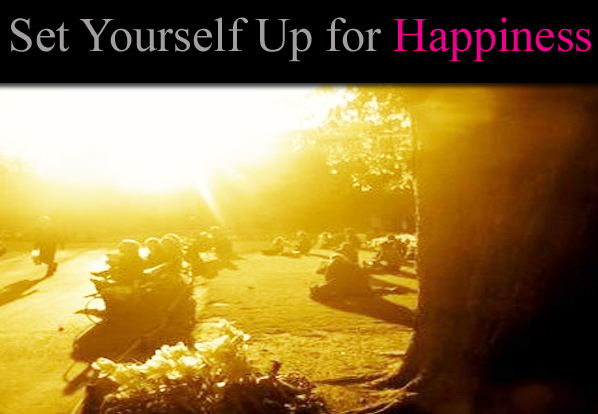Jean finally receives the news she has been waiting for. However, she’s immediately disappointed – if she accepts her new promotion, she must move farther north, where the winters are long and frigid. She was hoping her promotion would allow her to stay in a warm climate. Jean can’t imagine being happy in such harsh weather. After much deliberation, Jean decides that she will not accept the promotion.
We all know that our decisions today will impact our happiness in the future. If this is true, what influences our daily decision-making? The answer is our predictions of our future happiness. In the above scenario, Jean decides to not accept her job promotion because she predicts that she won’t enjoy her life in a place with such cold weather. But how will Jean ever know if she made the right decision? What if this promotion would have led to an upper management position? What if she would have acclimated to the harsh weather after just a year or two? Each day we make decisions based on how happy we expect to feel in the future. Let’s take a closer look at how we make such happiness predictions.
It may surprise you to learn that, like Jean, people are not very good at knowing how happy they will feel in future situations. Indeed, many scientific studies suggest that people overestimate how unhappy they will feel if something bad happens1.
For example, one study asked participants to predict how unhappy they would feel two months after the end of a romantic relationship. When that time arrived, the study results showed that people had predicted that they would be less happy than they actually were. In another study, women overestimated how unhappy they would be after receiving unwanted results from a pregnancy test. When a negative event occurs, we often end up feeling less upset than we originally expected. Why does this happen? The difficulty is that our happiness predictions are biased. Awareness of these biases allows us to make better decisions on important matters such as our choice of romantic partners, where to live, and how we pursue happiness.
Imagine that you are dreading an upcoming visit from your in-laws. It’s easy to focus exclusively on how unhappy you will feel because of this visit. But what about other things that will happen during that time? Perhaps you will get a kind e-mail from an old friend or your child will bring home an excellent report card from school. The impact of a future negative event will depend on whatever other events occur at that time. Before jumping to conclusions, remember that an unfortunate circumstance may be accompanied by unexpected fortune. You won’t know until the day unfolds, so stay optimistic! Anxiety about the future does nothing but guarantee you suffering in the present.
MORE: How to Stop the Negative Mind Clutter
We are more resilient than we realize. As human beings, we have an amazing ability to cheer ourselves up after feeling saddened. Decades of psychological studies have revealed our tendency to protect our individual sense of worthiness. When this is threatened by a setback at work or a bad relationship, we will explain, justify, defend, and even exaggerate to ourselves and others to feel at peace with the situation. One study found that participants who failed to get a job of their choice felt less upset just ten minutes later when they were able to rationalize the reason why it happened (for example, believing that the interviewer was a jerk)1. Such recovery from adversity happens automatically and unconsciously; you do it far more often than you realize! Before lamenting over the inevitable downsides of life, trust in your natural ability to cope with negative events and move on from them. In hindsight, you’ll be glad you maintained a positive attitude.
It’s easy to judge a dark cloud on the horizon, but maybe the downpour you expect will turn out to be a mere drizzle. Even if a negative event is unavoidable, reassess your happiness expectations by considering how upset you will actually feel and how long this feeling is really going to last. Be optimistic and trust in your inherent human ability to recover and thrive.
One final note: in addition to what you think will make you unhappy, carefully examine your choice of happiness-boosting activities. One study found that people underestimated the happiness boost they received from a simple outdoor walk, relative to a walk indoors2.
MORE: How Nature Can Make You Healthier and Happier
Your first opinion of a happiness technique may be narrow and misleading. If you are struggling to find happiness, temporarily depart from your usual strategies and preferences; you might discover something that you had never considered before. Indeed, on our happiness journey, the path we are inclined to avoid may actually lead to what we truly desire.
Get more tips on happiness, health, beauty, relationships and more over at YouBeauty.com.


